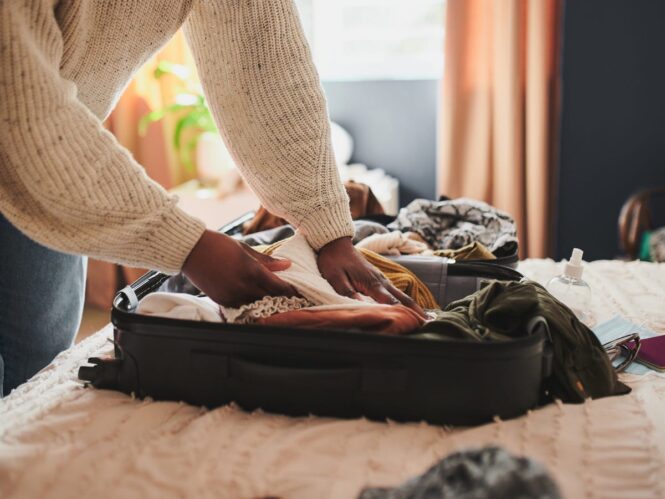Going to college can take up much of your time. You must pay attention to your academic requirements, or you could risk failing classes and dropping out. It’s a situation you, as a college student, don’t want to face, especially if you’re studying abroad.
Yet, despite the rigors of university schoolwork, leisure travel is still possible. It needs careful time management and lots of preparation. Read this post if you’re traveling for the first time while studying full-time. The info below will help you make your first trip as a student safe and successful.
1. Consider Overseas Internship And Volunteer Programs

Traveling, in general, helps broaden your horizons and knowledge. But there are ways to travel to other countries while also furthering your education. Some organizations like International Medical Aid offer overseas internships and volunteer programs to help you develop new skills and make a positive impact on communities in need.
Make sure to consult with your adviser for options that align with your curriculum requirements. Your adviser can also help you schedule the trip well so that it doesn’t interfere with your other priorities.
2. Travel After Finishing School Priorities
Going on a trip is exciting, but it’s important not to let it interfere with your studies. Neglecting your schoolwork could hurt your grades and ruin your travel plans. To avoid this, complete most, if not all, of your pending school requirements before leaving. Submit your papers and projects as early as possible, so you’ll have fewer worries and more time to enjoy your trip.
If you have additional school requirements to finish while traveling, make sure to pack the necessary equipment. Bring your laptop, study materials, and a portable Wi-Fi router in case the place you’re going to has limited connectivity. If you expect delays in submitting assignments, inform your professor immediately.
Remember, it’s all about balance. You can have fun while still taking care of your academic responsibilities. By planning ahead and being prepared, you can have the best of both worlds.
3. Pack Your Bags Wisely

Many first-time travelers make the honest mistake of over-packing for a trip. It’s an issue you could fix by making a checklist. It should include your travel essentials, such as toiletries, clothes, medication, and money. Refrain from packing too many clothes, though. Bring garments that are appropriate for the location’s climate, including some off-season pieces in case the weather changes abruptly.
Don’t forget to charge your electronics before you leave. And your gadgets must be safe for travel. You may need to invest in laptop sleeves to protect them from falls or bumps. If possible, ensure your devices’ batteries are at a workable level for at least four hours. Preparing PDF or ePUB files instead of physical books will lighten your luggage bag too.
When you arrive at your location, list your belongings, including perishables. And before you return home, review your inventory again while repacking your bags. Doing this will help you check for things you might’ve missed and avoid leaving them behind.
4. Mind Your Budget
Financing your tertiary education is a big deal, whether you’re studying locally or abroad. Many students and their families pay for it through their savings or financial assistance. But let’s face it, money is still money. So, if you plan to travel while studying, make sure to budget appropriately. Don’t blow all your savings on one trip. It’s better to have some leftover cash for emergencies.
When you arrive at your destination, consider using affordable public transportation instead of taxis. Buses and trains are usually much cheaper. And when it comes to food, do your research and find the cheapest places to eat. Don’t default to expensive coffee and fast food just because it’s what you’re used to back home.
If you know someone you trust in the area, ask them to help you find the best and cheapest deals. You might even discover some free activities, like visiting museums with no entrance fees. Just make sure to follow the laws of the place you’re visiting to avoid paying hefty fines.
5. Always Keep Someone You Trust Posted
Traveling solo is a great way to learn to be independent. But, let’s face it, it can also be a bit scary. That’s why you should always let someone know where you’re going. Whether it’s to another country or just a few hours away from campus, always keep someone in the loop.
The first people who should know your location are your parents. If you can’t contact them for any reason, inform your roommates, close friends, and your dorm supervisor or apartment landlord. It’s also a good idea to include a trusted advisor, counselor, or professor. Make sure to let them know where you’ll be staying, who you’ll be with, and how long you’ll be gone.
Sharing personal information can be overwhelming, but if you trust these people, they can immediately alert authorities if something goes wrong. Don’t think of it as being dependent on others; your safety matters, especially in an unfamiliar place.
6. Be Open To New Experiences

The main goal of any traveler is to experience something new. Don’t go for establishments that you also have in your home country or city. Look for unique places you believe would make your time there worthwhile as a student.
If there are free and interesting classes and activities in the town you’re visiting, ask if you can register for them. They could be beneficial for your studies. Learning through local immersion is a fantastic way to gain valuable knowledge of different cultures. Lessons like puppet-making workshops or cooking classes are examples of what you might find on trips abroad.
Conclusion
If you have the opportunity to travel, take it! Traveling while you’re in school is a great way to broaden your horizons and gain new experiences. Sure, your university may be diverse, but it doesn’t beat immersing yourself in another place and culture.
But before you take off on your adventure, make sure to plan ahead. Use this guide to help you prepare for your trip and ensure a fun, stress-free, and educational experience.
 Imagup General Magazine 2024
Imagup General Magazine 2024



